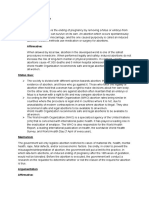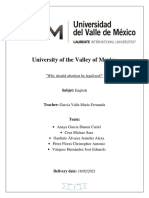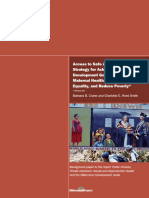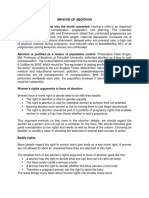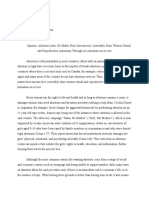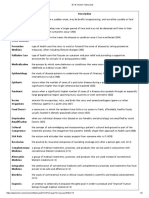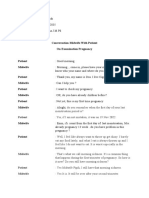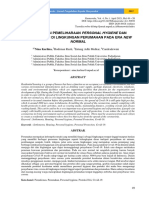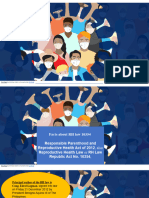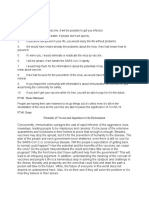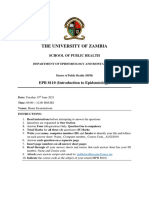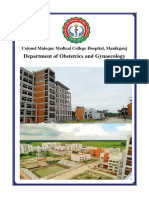Abortion
By: Claudio Casco
In the world, nowhere has the word and practice of abortion not created a debate
stirring much emotion and laying bare deep divisions from the halls of power to casual and
private conversations. Abortion is defined as the voluntary termination of pregnancy, an act
which encompasses not just medical but also moral, legal, and very personal issues. In
many countries, the legality and access to abortion vary widely, reflecting diverse cultural
and religious beliefs. The right to make decisions about their bodies has been a struggle for
women since ancient times, being most of the time affected by restrictive laws and social
judgment. Even though abortion is an issue that is never going to come to a conclusion, it is
critical that it remains legal and accessible in order to protect the health and reproductive
rights of women, prevent risks and complications resulting from dangerous procedures, and
ensure personal autonomy.
Legalization of abortion is very much significant for the health and reproductive
rights of a woman. The WHO claims that the legalization of abortion has proven to reduce
the rate of maternal mortality. There are few pregnancy-related complications in countries
that legally allow and give access to abortion. It is because women from such countries can
get safe and medically controlled abortions without having life-threatening complications,
which come as a consequence of unsafe methods. For instance, a WHO research project has
found that in regions where abortion is heavily restricted or banned, unsafe abortions
become a leading cause of maternal death — WHO, 2019. Legal restrictions of abortion do
not eliminate it; they only force women to use unsecure avenues that will result in risky
health consequences or in the worst situation, lead to death.
Legalizing abortion goes a long way in protecting the health of women, and it also
deals with the general issue of reproductive rights, where a woman can be free to make an
informed decision about her body and future. Denying a woman the right to make this
decision infringes on the basic human rights of every woman because it forces her to carry
an unwanted pregnancy to term regardless of any physical, emotional, or financial
consequence. This basically may affect a woman's life quite permanently in terms of
limiting her educational and career opportunity, raising chances of poverty, and affecting
her mental health.
Safe and legal access to abortion reduces the risks that are linked to unsafe
procedures. Before abortion was legal in many countries, women resorted to dangerous
clandestine methods to terminate unwanted pregnancies. Performed by untrained people or
under dirty environments significantly increased the chances of complications like severe
bleeding, infection, and infertility. It is also noted by the Guttmacher Institute that, in places
where abortion has been legalized and made accessible, the cases of unsafe abortions have
significantly declined, thus resulting in much more improved health outcomes for women
(Guttmacher Institute, 2021).
� Another factor that can be considered to increase the safety of abortion procedures
is that, most of the time, where performed legally, it is subjected to a well-ordered set of
rules and standards that require procedures to be carried out safely. This includes access to
trained professionals, adequate facilities, and after-care services—all of which would serve
to minimize health risks. Women in countries where abortion is highly restricted are more
likely to suffer the consequences of unsafe procedures, resulting in high levels of morbidity
and mortality.
There are those who feel abortion is morally wrong and should be restricted, the
rationale in many cases is having faith in religion or philosophy, which condemn abortion
as it has an inherent value for life right from conception. Of course, such perspectives are
both deep and respectable but forcing them on others implies a lack of personal autonomy.
In a pluralistic society, the views and decisions of other people cannot be forced upon an
individual, even if the decisions of this person contradict their position.
To respect personal autonomy, it is vital to acknowledge that women can make
knowledgeable decisions about their pregnancies based on their own unique circumstances.
Be it a result of rape, a risk to health, or a time when she is not willing to be a parent, the
decision on whether to continue or terminate should lie with the woman alone, not the state
nor the society. If women are not given this choice, they shall not only have their rights to
self-determination violated but also be condemned to unnecessary torture and other
hardships.
Legality and accessibility of abortion are critical for health, reproductive rights, and
personal autonomy. Legalizing abortion reduces the risks associated with unsafe procedures
and ensures that a woman has the right to make an informed decision about her body and
her future. While the debate over abortion will doubtless persist, it is indispensable to place
priorities on matters of women's health, rights, and autonomy with reference to the subject
at hand. Abortion cannot be eliminated—it can only be made dangerous to desperate
women—so it should be kept safe, legal, and available in order to preserve the health of
women and their fundamental rights.
�References
Guttmacher Institute. (2021). Abortion Worldwide 2021: Uneven Progress and
Unequal Access. Retrieved from https://www.guttmacher.org.
World Health Organization. (2019). Preventing unsafe abortion. Retrieved from
https://www.who.int/news-room/fact-sheets/detail/preventing-unsafe-abortion.








